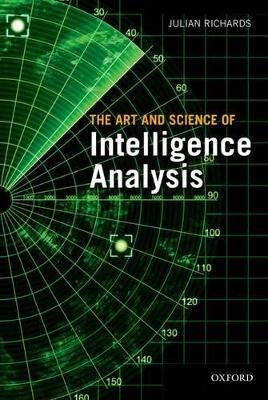
The Art and Science of Intelligence Analysis
Oxford University Press (Verlag)
978-0-19-957845-0 (ISBN)
On 11 September 2001, the Al Qaeda-sponsored attacks in New York and Washington DC marked a turning point in global security. The worldwide impact demonstrated not only that no country is an island, but also raised questions about the way the intelligence community gather its data, analysed it, and disseminated it up to the policymakers. Some of these questions concerned the very tradecraft of intelligence - the process of analysis itself. This book deconstructs the profession of intelligence analysis in the contemporary, globalised world, and asks: is it an art, a science, or both?
The availability of data and information to support intelligence analysis is now much greater than ever before, and used properly, this material can assist hugely in the fight against terrorism. This book takes a practical look at intelligence analysis and offers a synthesis of the key issues affecting this area and the context within which it is taught and understood. The main cognitive processes affecting analysis and interpretation, such as memory, hindsight, perception, bias, hypothesizing and evaluating data, are explained in the context of the intelligence machinery and environment, and the book explores ways in which pitfalls can be mitigated. There is also discussion about the external pressures and influences on intelligence analysis, such as politics, ethics and civil liberties, cultural factors, and the changing nature of security threats and their impact on the intelligence process.
In its analysis, the book provides an objective view of intelligence success as well as failure, and will be of interest to police and security intelligence trainers and analysts, police counter-intelligence units, and those involved in the study of policing, intelligence and counter-terrorism.
Dr Julian Richards is a Lecturer at the Centre for Security and Intelligence Studies at the University of Buckingham, and was previously a researcher at Brunel University's Centre for Intelligence and Security Studies. Prior to that, Dr Richards worked for 16 years in intelligence, counter-terrorism analysis, policy formation and training. In 1993, he was awarded a PhD from Cambridge University for his thesis on nationalism in Pakistan, and has since written numerous papers on terrorism, counter-terrorism and security. He is a regular facilitator on joint agency training programmes in the UK on intelligence analysis and terrorism.
1. Definitions: what is intelligence, and intelligence analysis? ; 2. Intelligence Failure, and Success ; 3. From 3rd Reich to Al Qaeda: changing intelligence targets, evolving challenge ; 4. The Intelligence Environment: Political, cultural and ethical influences on intelligence analysis ; 5. Analytical Theory: The Art of Analysis ; 6. Analytical Theory: The Science of Analysis ; 7. Meeting the skills and training challenges ; 8. Conclusions: Art or Science?
| Verlagsort | Oxford |
|---|---|
| Sprache | englisch |
| Maße | 157 x 234 mm |
| Gewicht | 330 g |
| Themenwelt | Recht / Steuern ► EU / Internationales Recht |
| Recht / Steuern ► Strafrecht ► Besonderes Strafrecht | |
| Recht / Steuern ► Strafrecht ► Strafverfahrensrecht | |
| Sozialwissenschaften ► Politik / Verwaltung ► Staat / Verwaltung | |
| ISBN-10 | 0-19-957845-1 / 0199578451 |
| ISBN-13 | 978-0-19-957845-0 / 9780199578450 |
| Zustand | Neuware |
| Haben Sie eine Frage zum Produkt? |
aus dem Bereich


